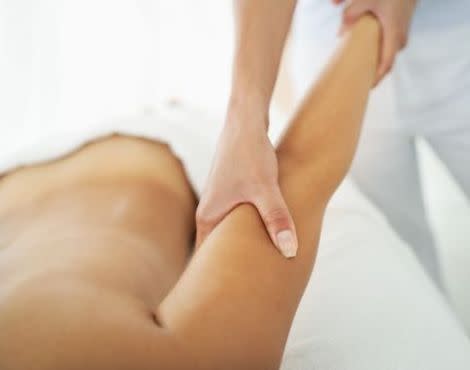No More Itchy, Flaky Winter Skin!

When the weather outside is frightful, the frigid air has very low levels of water content. That's what dries out your skin. Ironically though, the fire inside only seems delightful. Your crackling Yule log combined with normal indoor heating will further deplete your thirsty epidermis of the fluids it needs to stay soft and supple. Add to all of that the fact that aging skin is thinner, less elastic, and more prone to moisture loss than it once was, and you can see that you need an action plan to ensure that you don't end up looking scaly - or worse, getting cracks that could lead to infections. Here's the drill:
Write your relationship success story. Find 50+ Singles on BetterDate.com. Join Free Today!
Invest in a humidifier. Portable varieties start in the $30 range. The lower cost models are perfectly adequate. You can also get desktop versions to keep you hydrated while you're at work. Caveat: Clean the device often to get rid of bacteria and fungi that can collect.
Use moisturizers. In addition to whatever products you routinely use on your face, be sure to slather on creams or lotions all over your body during the winter months. The Mayo Clinic recommends thicker over-the-counter brands such as Eucerin and Cetaphil to create a "seal" on your skin. Baby oil works really well, too. Also, some cosmetics -- especially those developed for older skin -- have moisturizers in them. That includes foundations, lipsticks, blushers, and eye shadows so you can have color and moisture all at the same time.
Consider applying heel cream. Cracked heels are a common winter nuisance condition, but if you don't catch the problem in time, you could end up with fissures that bleed and breed germs. A good ploy is to use special heel cream such as Dr. Scholl's, or even petroleum jelly, and then wear cotton socks to bed. OK, maybe that doesn't sound very sexy, but cracked heels are not exactly a come-on either! Tip: If your hands are also drying out, use cream or petroleum jelly and wear cotton gloves to bed.
Don't soak in the tub or take long, hot showers. This may seem counterintuitive, but prolonged exposure to water at fairly high temperatures sucks the natural oils and moisture out of your skin. Even after a warm bath or shower, apply moisturizer immediately while your skin is still damp.
Choose gentle cleansers and gels. Soap, in particular the kind with antibacterial ingredients, is harsh and drying. Your skin should never feel taut and drawn after you've washed it,so use that as a guide when deciding which products are keepers.
Avoid detergent-based shampoos. Your scalp can dry out, too, so use gentle products that keep it from flaking.
Opt for natural fabrics instead of synthetic. Cotton, silk, and linen let your skin "breathe," while nylon and other synthetics inhibit the normal exchange of moisture. The one exception here is wool, which can irritate your skin.
These simple and affordable measures can work together to keep you smooth and itch-free until the weather warms up again. Let it snow, let it snow, let it snow!
Also Popular On ThirdAge:
6 Excuses For Not Saving For Retirement
